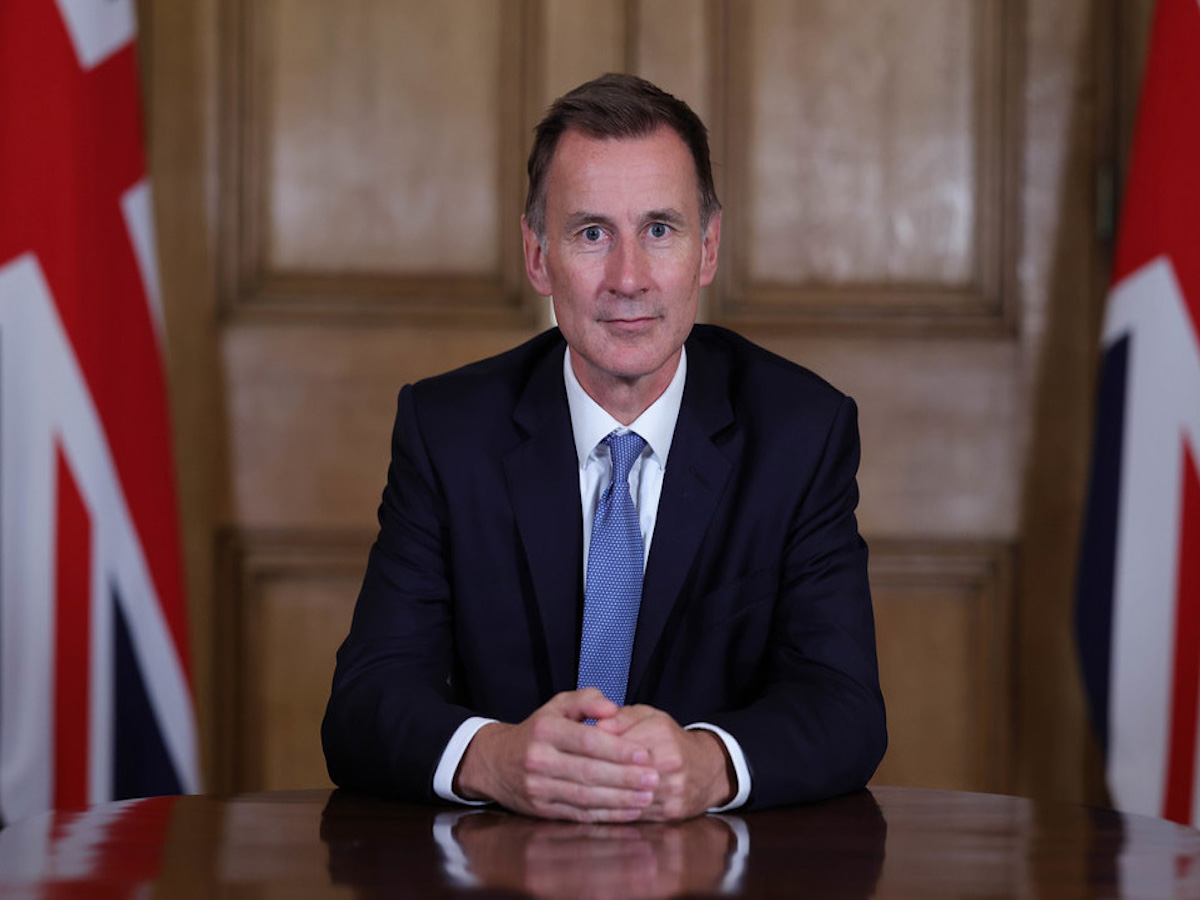Despite its big billing, the Mansion House speech by chancellor of the exchequer Jeremy Hunt faced significant scepticism from institutional investors.
The chancellor announced a raft of reforms designed to ensure that pension scheme money is used more productively, chiefly via investment in high-growth companies. With this in mind, he also solidified the initiative for defined contribution (DC) pensions to voluntary allocate 5% of their assets to unlisted equities by 2030.
Hunt said that as part of his ‘Mansion House Compact’ many of the largest DC pension schemes – Aviva, Scottish Widows, L&G, Aegon, Phoenix, Nest, Smart Pension, M&G and Mercer – had officially signed up for the 5% commitment.
“If the rest of the UK’s DC market follows suit, this could unlock up to £50bn of investment into high growth companies,” Hunt said.
Many of Hunt’s announcements relate to what the government sees as a better use of funds invested in DC pension schemes, but the government also made clear its willingness to turn its attention to the much larger sums held in more than 5,000 defined benefit (DB) pension schemes.
“Currently we have a perverse situation in which UK institutional investors are not investing as much in UK high-growth companies as their international counterparts,” Hunt said.
And he added: “We will set out our plans on introducing a permanent superfund regulatory regime to provide sponsoring employers and trustees with a new scaled-up way of managing DB liabilities.”
Meaningful difference
Chris Smith, investment manager UK equities at Jupiter Asset Management, raised some interesting questions about Hunt’s speech.
“As a UK fund manager with significant investments in UK plc, it goes without saying that we are extremely keen to see the UK’s entrepreneurs, economy and its corporations thrive globally.
“That said, it is unrealistic to expect the reforms announced to make a meaningful difference to growth or investment in the UK in the short term and there are still a lot of questions to answer,” he said.
Here Smith listed some pertinent points: how are ‘UK growth assets’ defined? What does a ‘voluntary expression of intent’ in relation to growth investments mean? What will be the liquidity, valuation, cost differences and implications to pension fund members being asked to invest in unlisted assets?
And Smith repeated the often cited argument in regard to investors being nudged to support this type of agenda: “Is there enough in the way of high quality, unlisted investment opportunities in the UK for an additional £75bn of investment?” he said.
A similar point was made by Nigel Peaple, director of policy and advocacy at the PLSA: “The availability of high quality and reliable analysis of small, but growing, companies is essential if the UK is to be a country where new businesses can scale up and prosper.”
In addition, Chris Smith asked a further point: “What evidence suggests that unlisted assets will deliver higher, risk adjusted after fee returns and therefore justifies a higher allocation in pension portfolios?”
See the gap
Further investor scepticism was revealed in a poll of 200 pension schemes immediately following the chancellor’s speech. This showed that only 30% of schemes are supportive of the chancellor’s plans to encourage pension schemes to invest for growth, according to XPS Pensions Group.
The results suggest that industry views on how to encourage pension schemes to invest in economic growth clearly differ from those of the government.
Only 4% thought more trustee training – a key area that the government is investigating as a solution to improve investment practices – would have the most impact.
In contrast, 43% believe a fundamental change to the flexibility of funding and investment regulations is the most important change needed to allow more investment by DB schemes in UK growth assets.
The chancellor also announced measures to address the consolidation of pension schemes aimed at bolstering investment in the growth agenda. He then offered more details on his March 2025 pooling deadline for LGPS funds, which includes a proposal for the LGPS to double its private equity allocation to 10%.
Nigel Peaple made the point that there are other ways the government can address the growth agenda. “It is important to remember that there are things other than consolidation that the government can also do to facilitate investment in the UK, for example amending the rules applying to the AE [automatic enrolment] market, introducing more flexibility in the TPR DB funding code for open DB schemes, and supporting the good governance of the LGPS scheme.”
Alternative ways
Peaple also noted how fiscal incentives, such as LIFTS, are helpful. “Perhaps of more importance than anything else is ensuring there is a pipeline of suitable investment assets – which is why we support a bigger role for the British Business Bank [also] announced,” Peaple added.
Adrian Gosden, investment director at GAM Investments, also offered the chancellor an alternative approach to achieve similar objectives aligned with the growth agenda. “What the chancellor should focus on is encouraging UK asset owners to invest in already listed mid and small cap UK companies,” he said.
“These typically operate where the pension fund constituents live, that is, within the UK,” Gosden added. “In turn, that will likely lead to greater interest in and more capital allocated to UK smaller companies to help them thrive, create employment opportunities and growth.”
Jupiter’s Chris Smith also made the point that: “It is crucial that the pension compact remains voluntary both in letter and in spirit.”
This, he noted, is because fundamentally, pension fund trustees have a fiduciary duty to carefully and thoughtfully maximise the risk-adjusted returns for their members.
And Smith added: “Trustees should be making these important investment decisions independently without interference from politics”.
But given Hunt’s agenda, he and the government seem on a different wavelength to those of investors.





Comments